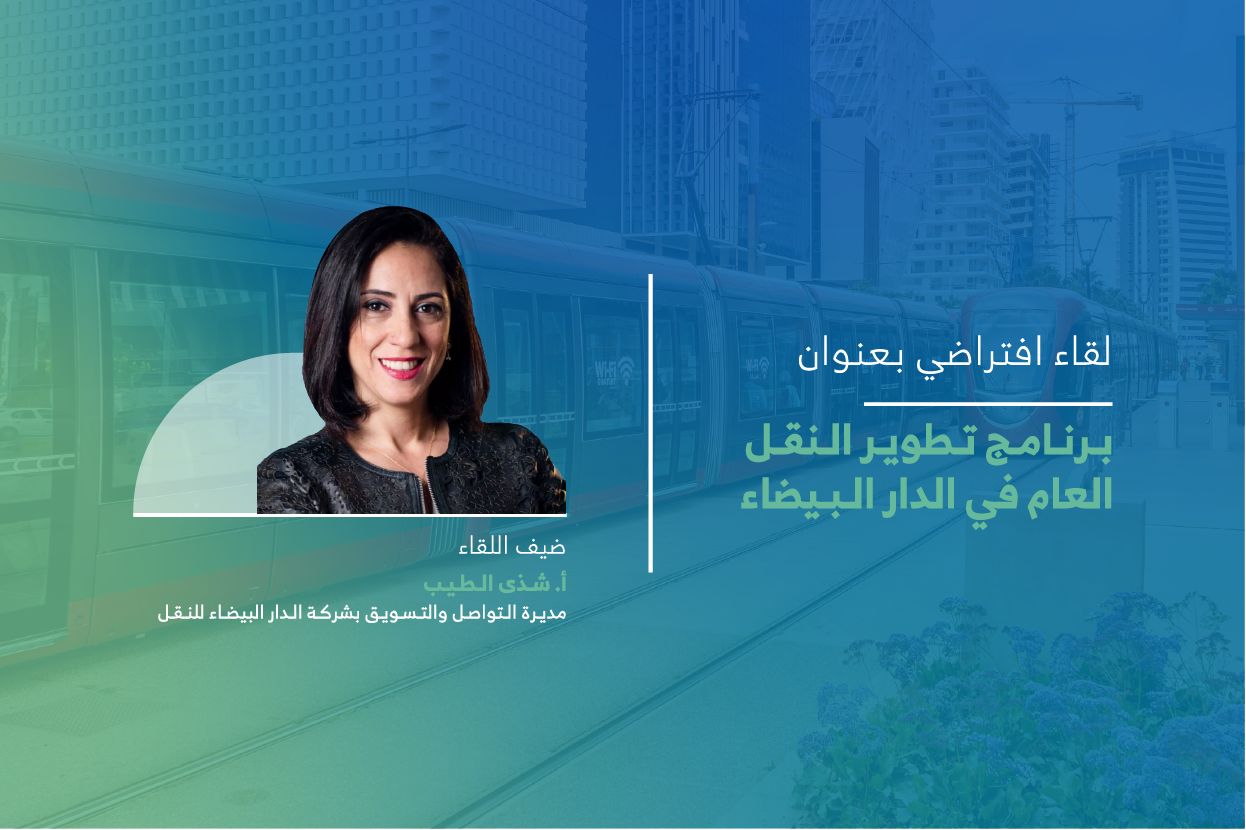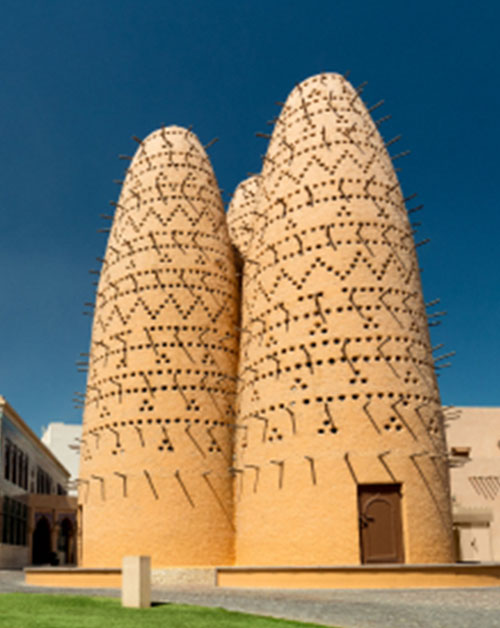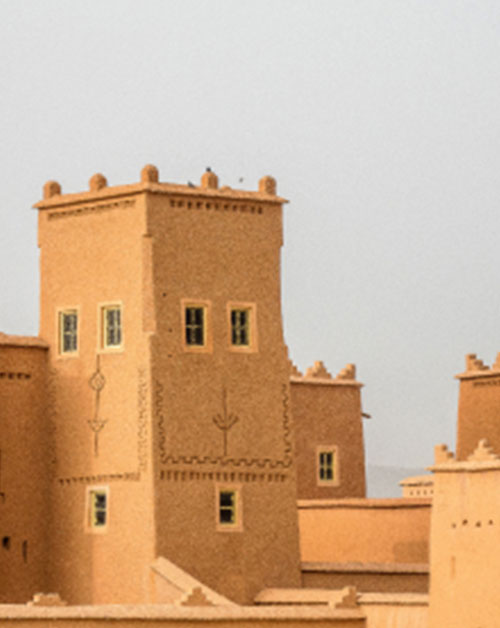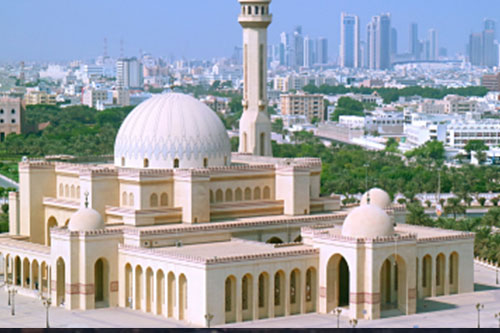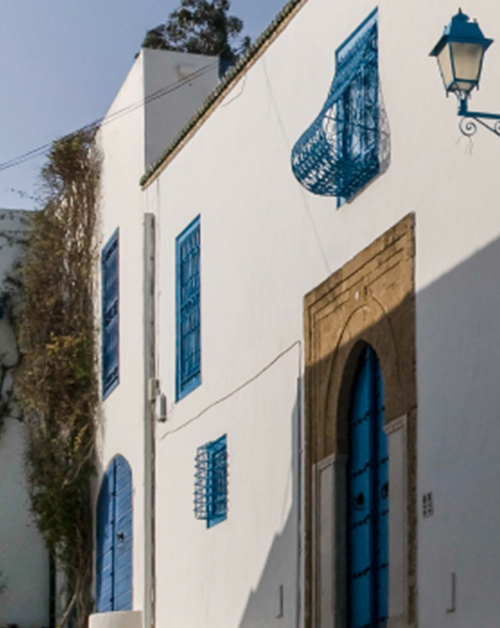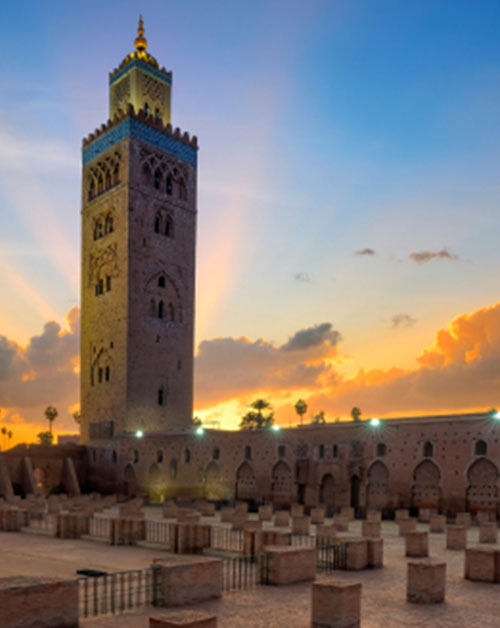Back
AUDI held the fourth webinar of “Cities in Action” on the public transportation development program in Casablanca.
30 Jul 2024
The Arab Urban Development Institute organized the fourth webinar in its monthly series, “Cities in Action,” on Tuesday evening, 24 Muharram 1446 AH, corresponding to July 30, 2024. The event was attended by several specialists and stakeholders interested in urban development and urban transportation issues.
The meeting began with Dr. Abdullah Dafiullah, the meeting’s moderator and professor of urban planning, providing an overview of the “Cities in Action” webinar series. He emphasized its importance in enriching discussions among experts and stakeholders in urban development across the Arab world. He also highlighted that the meetings aim to showcase pioneering urban development projects and exchange ideas on working mechanisms and success factors.
The discussion focused on Casablanca, addressing the opportunities and challenges in updating the city’s transportation systems. Ms. Shatha Al-Tayeb, Director of Communication and Marketing at Casablanca Public Transport Company, highlighted that Casablanca is the largest city in Morocco, accommodating over 4.2 million residents. It is a key driver of economic growth, accounting for 25% of the GDP. The rapid population growth and significant urban transformation in recent years have exacerbated transportation and congestion issues, making transportation development essential for improving residents’ quality of life.
Ms. Al-Tayeb outlined that the public transportation development plan for Casablanca aims to achieve several key objectives, including reducing traffic congestion, improving air quality by decreasing carbon emissions, and enhancing the efficiency of transportation services. She explained that the project is part of a broader vision to transform Casablanca into a smart and sustainable city, enhancing its attractiveness and paving the way for a better future.
Ms. Shatha Al-Tayeb outlined the key components of the public transportation development project, noting that its implementation will occur in multiple phases over several years. In the first phase, the tram network will be expanded to cover new areas within the city, which will help alleviate congestion and reduce reliance on private cars. This phase will also enhance the bus network by introducing new, eco-friendly electric vehicles.
She added that the project includes the creation of two tram lines totaling 47 kilometers, with 70 passenger stations. Future plans involve launching two additional lines spanning 26 kilometers and adding 40 more stations. Furthermore, two new electric bus lines will be introduced, covering 24.5 kilometers with 42 stations. The project will also include a new fleet of 700 “Casabus” buses covering 1,090 kilometers, providing 1,830 stops across 59 routes connecting Casablanca with neighboring areas. She emphasized the importance of organizing awareness campaigns to build a culture among public transport employees and enhance a service philosophy centered around customer satisfaction, safety, and citizenship.
Ms. Al-Tayeb explained that the primary reasons for commuting in the city are closely related to work and study, and improving transportation conditions is a pressing necessity to maintain Casablanca’s status as Morocco’s economic engine. In this context, she highlighted two options for addressing these challenges: first, investing in infrastructure development without comprehensive public transport regulation, and second, developing a comprehensive and high-quality public transportation network that ensures ease of access and improves urban space distribution. This approach will boost the local economy and foster social integration.
All these factors have paved the way for developing a pioneering program in Casablanca based on the Urban Mobility Master Plan. This plan aims to provide an integrated public transport network, restructure the public transportation sector, and revitalize public spaces to foster a sense of belonging to the city. Ms. Al-Tayeb noted that 2014 marked a turning point in public transportation in Casablanca with the launch of the city’s development plan, which established a comprehensive strategy for sustainable development.
She emphasized that the new strategy seeks to prioritize public transportation within the city, focusing on three key factors to ensure the program’s success, including: facilitating access to the transportation network, providing a multi-modal transportation system, and improving quality of life. She highlighted the importance of developing public transportation infrastructure to ensure the project’s sustainability and enhance the city’s attractiveness to foreign investment. She concluded by stating that the public transportation development project in Casablanca represents a vital step towards improving the quality of life in the city, promoting sustainable development, providing a qualitative shift in how residents move within the city, as well as, positioning Casablanca as a leading smart city in the region.
At the end of the meeting, Dr. Abdullah Dafiullah thanked the attendees for their engagement and valuable contributions, praising Ms. Shatha Al-Tayeb for her significant role in the public transportation plan. He underscored the importance of continuing these meetings to strengthen cooperation and exchange knowledge among urban development experts.
